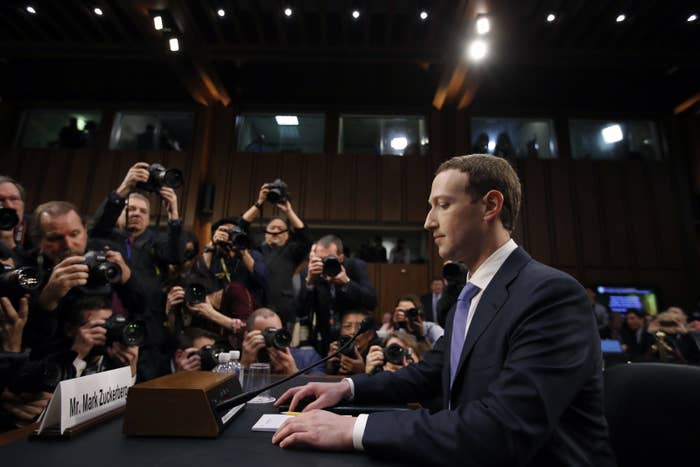
In the space of a week, the US Congress held hearings on the rise of white nationalism and the role of social media in spreading it; the British government announced an “online harms” initiative, to curb — with government oversight — the proliferation of hate speech online; and Australia passed a law that requires social media platforms to swiftly remove “abhorrent violent material.”
This is all great and good, but it avoids an underlying problem. The source of our hatred isn’t just Facebook walls or Twitter threads — it’s a real-life movement of racial incitement that has been amplified and institutionalized through decades of work by hate-mongers in the traditional media. Social media can spread that message even further, but it feeds off hatred that courses unchecked through the mainstream.
We are right to demand more from social media executives, with serious repercussions to follow if they don’t deliver. But consider the position these executives now find themselves in. How long until Facebook must choose between accurately representing newspaper front pages, or respecting anti-hate rules? How can we expect social media to be a hate-free zone when the world around us is anything but tolerant? How can the political discourse on social media remain relevant while at the same time being forced to portray a walled kindergarten version of reality?
Social media is a reflection of us, and its algorithms are optimized to make us click. It gives us what we already want — it doesn’t particularly introduce us to things we are opposed to or uninterested in. And many parts of the traditional media are exactly the same. Just as social media wants clicks, and delivers us ever more extreme content for them, newspapers and TV need readers and viewers, and their editors make decisions every day about what will retain their eyeballs.
Do we expect social media outlets to compete with traditional media while not being allowed to trade in the same content? When President Trump says that “Islam hates us” or calls some immigrants “animals,” do social media firms include his comments in our newsfeeds, thus risking falling foul of their newfound responsibilities, or censor his statements, and become little more than state-sanctioned propaganda outlets? Would a clip of a Fox News anchor warning of a conspiracy by George Soros to replace America’s population with foreign rapists suddenly become digital hate speech when shared online?
The great promise of social media was to provide us a space where all opinions — including the unlikely and the unheard — were welcome, or even amplified. This freedom was quickly embraced by a coalition of hate-mongers. If freedom of speech meant an almost unbridled freedom to rally, insult, and accuse on paper and on television, then, the thinking went, surely speech should be even freer online.
This position was enhanced and abetted by the argument — written into law in the US — that social media firms were not editorially responsible for content in the same way that newspapers were. They were seen more like the equivalent of a phone company, offering phone lines but not policing what is said on the calls.
But as their role in the global media ecosystem becomes ever more central, social media firms are increasingly viewed as publishers, who in effect are curating and amplifying millions of short opinion pieces by unpaid (and often anonymous) freelancers. When that content incites hate, many see the platforms as being just as responsible as any newspaper editor — and with a change in perception comes demand for regulation.
Should we be asking equally tough questions of the traditional media companies spreading so much hatred?
There’s no easy way to square this circle. But at least this could be the beginning of us reexamining not only our media, but our entire culture, in which hatred of Muslims, immigrants, and people of color is frighteningly common, and validates and encourages the online radicalization of those who are angry, alienated, and increasingly willing to act. It’s not just about the posts we publish — it’s about the ideological air we breathe.
Muddassar Ahmed is an advisory council member at the Atlantic Council and a fellow at the German Marshall Fund.
